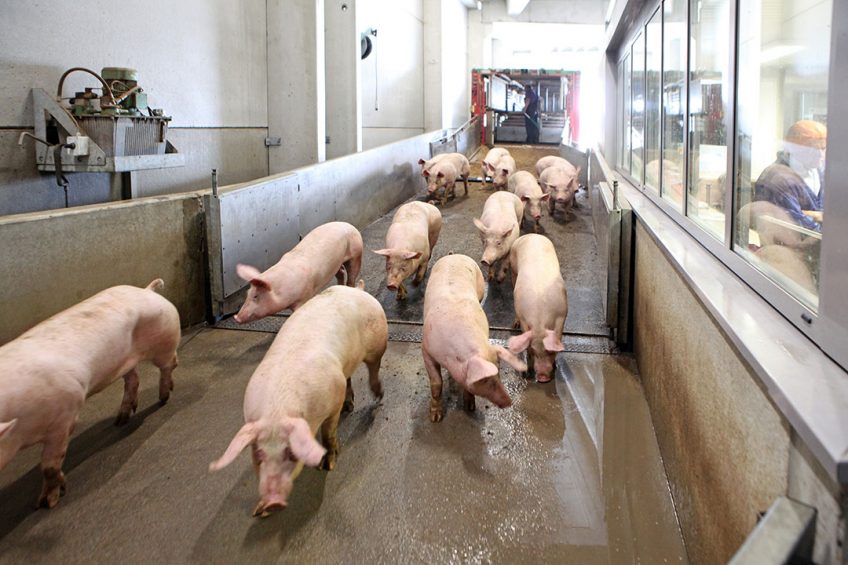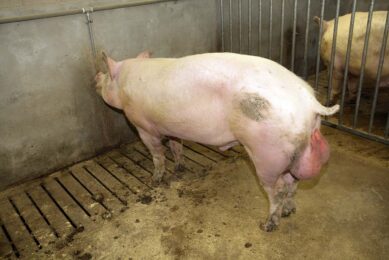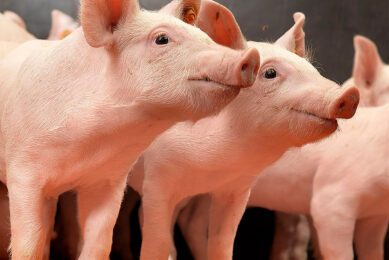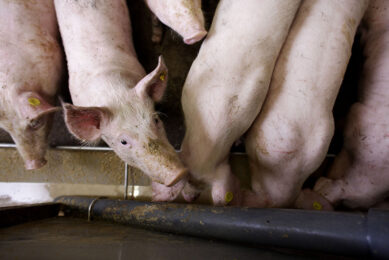EFSA addresses welfare issues at pig slaughter

In a time where slaughterhouses and their staff are under scrutiny due to Covid-19, the European Food Safety Authority (EFSA) released a scientific opinion on pig welfare during the slaughter process. Their view: most welfare issues at slaughter are due to inadequate staff skills and poorly designed and constructed facilities.
The European Commission requested the scientific opinion. It is based on the latest available scientific knowledge and is developed in consultation with animal welfare experts from EU member states. The article proposes measures to address the welfare hazards most commonly associated with the slaughter of pigs for food production and follows similar earlier opinions on poultry and rabbits.
Future approach to pig welfare at slaughter
The scientific opinion is important, as it will most likely play an important role in the EU’s future approach to pig welfare at slaughter. In a press release, Marta Hugas, EFSA’s chief scientist, said: “As part of its new Farm to Fork strategy, the European Commission is reviewing current provisions on animal welfare, with the aim of creating a more sustainable food system in the EU. This series of opinions, plus others that we will deliver in the next few years, will provide the scientific basis for that review.
She added, “Having high standards of animal welfare improves animal health and food quality, reduces the need for medication and can help preserve biodiversity. Healthy, well looked-after animals are essential to a healthy food chain.”
Recommendations on pig welfare included
The scientific opinion included various recommendations on what to do with pigs in the process of slaughter to ensure animal welfare.
- To spare pigs from severe welfare consequences, a standard operating procedure (SOP) should include identification of hazards and related welfare consequences, using relevant ABMs, as well as preventive and corrective measures.
- Upon arrival, pigs should be unloaded as soon as possible and those with severe pain, signs of illness or those unable to move independently should be inspected and a procedure for emergency slaughter should be applied immediately.
- Keeping pigs in lairage should be avoided, unless it benefits their welfare.
- Permanent access to water, adequate space and protection from adverse weather conditions should always be ensured during lairage.
- Stunning methods that require painful restraint or induction of unconsciousness should not be used.
- To monitor stunning method efficacy, the state of consciousness of the animals should be checked immediately after stunning, just prior to neck cutting and during bleeding.
- Death must be confirmed before carcass processing begins.

Meanwhile in Asia, large modern slaughterhouses are being built.
Process from arrival to slaughter
The overview on pigs covers the slaughter process in 3 phases:
- pre‐stunning (including arrival, unloading from the truck, lairage, handling and moving of pigs);
- stunning (including restraint); and
- bleeding.
The scientific opinion identified 30 hazards, including heat stress, thirst, prolonged hunger and respiratory distress. Most of the hazards – 29 out of 30 – are the consequence of staff failings due to factors such as lack of training and fatigue, EFSA said, adding that preventive measures can be put in place for all the hazards with site management identified as having a crucial role to play in prevention.
The scientific opinion in the EFSA Journal was authored by the EFSA Panel on Animal Health and Welfare (AHAW), consisting of Søren Saxmose Nielsen, Julio Alvarez, Dominique Joseph Bicout, Paolo Calistri, Klaus Depner, Julian Ashley Drewe, Bruno Garin‐Bastuji, Jose Luis Gonzales Rojas, Christian Gortázar Schmidt, Virginie Michel, Miguel Ángel Miranda Chueca, Helen Clare Roberts, Liisa Helena Sihvonen, Hans Spoolder, Karl Stahl, Arvo Viltrop, Christoph Winckler, Denise Candiani, Chiara Fabris, Yves Van der Stede and Antonio Velarde.
 Beheer
Beheer








 WP Admin
WP Admin  Bewerk bericht
Bewerk bericht